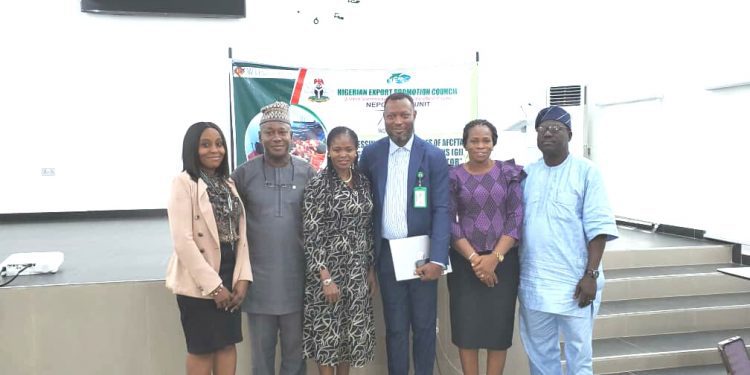Micro and Small Medium Enterprises (MSMEs) have been described as the bedrock of the economy of any country, and the MSMEs in Nigeria need to be positioned in a way for the country to benefit.
This remark was made by an Assistant Chief Trade Promotion Officer at the Nigerian Export Promotion Council (NEPC), Barrister Ben Achor during a workshop in Ibadan, Oyo State themed: Harnessing the Advantages of AfCFTA and Geographical Indications (GI) to improve the non-oil sector.
Achor urged MSMEs operators in Nigeria to up their games to benefit from the African Continental Free Trade Area (AfCFTA).
In his presentation titled, “Advantages of AfCFTA in the growth and development of Intra-African Trade,” Achor said Nigeria’s potential to become a major player in the African economy by virtue of its market size, human and natural resources endowments has never been in doubt.
Quoting the National Bureau of Statistics and the Small and Medium Enterprises Development Agency of Nigeria (SMEDAN), he said, MSMEs account for about 96 percent of registered Nigerian businesses that employ about 75% of the national labour force and contribute about 48% to the country’s Gross Domestic Product (GDP).
Achor however gave some statistics of top and low SME states in Nigeria taking his source from Proshare Economy.
According to the data presented, the total number of registered enterprises in Nigeria stands at 41.543,028 which is broken down into 41,469,947 (99.8%) for micro-enterprises while small enterprises take 0.17% at 71,288 and medium enterprises are as low as 1,793, representing 0.004%.
The facilitator also showed the topmost and lowest SME states where Lagos is leading with 8,395 registered SMEs (11.5%) followed by Oyo with 6,131 (8.4%) and Osun in the third position with registered SMEs of 3,007 (4.1%).
At the bottom of the table are Yobe State with only 102 SMEs (0.1%), Bayelsa State with 300 (0.4%) and Borno State having 538 (0.7%).
In her own presentation titled Geographical Indicators (GI), a Principal Trade Promotion Officer at the NEPC, Barrister Ngozi Ojekwe, told participants that, every product from every environment should be registered in the geographical location of its source.
According to Ojekwe, “Geographical Indicators have emerged as a global phenomenon, generating growing interest among markets both as Intellectual Property Rights (IPR) that deserves solid protection nationally and internationally and as a tremendous development tool.”
She also said, “The time is ripe for exporters, local stakeholders and international bodies involved in the development of GI in Africa to take stock of the progress made so far and address the remaining weaknesses which prevent African GI from reaping the full potential.”
Earlier in her welcome address the Trade Promotion Advisor, Ibadan Export Assistance Office, Mrs. Bolanle Emmanuel, charged the participants to learn the requirements for access of their products for profitable trade within the African Continent to reap the benefits of AfCFTA.
AfCTA is a trade pact to form the world’s largest free trade area by connecting almost 1.3bn people across 54 countries in Africa. It is also an agreement that aims to create a single market for goods and services to deepen the economic integration of Africa.
The workshop organised by the Legal Unit of the NEPC, a Federal Government Agency for the promotion of non-oil exports in Nigeria had in attendance the representative of Oyo State Commissioner for Ministry of Trade, Investment and Cooperatives, Mr. Yinka Raheem, and exporters from Oyo State.
The event recorded over 60 participants which include the representative of the Zonal Director, Nigerian Investment Promotion Commission, Mrs. Okeowo Ololade, the Zonal Director of the Nigerian Shippers’ Council, Mr. James Atilola, Mr. Monday Jacob, and executives of the National Youth Council of Nigeria (NYCN) Oyo State Branch.

